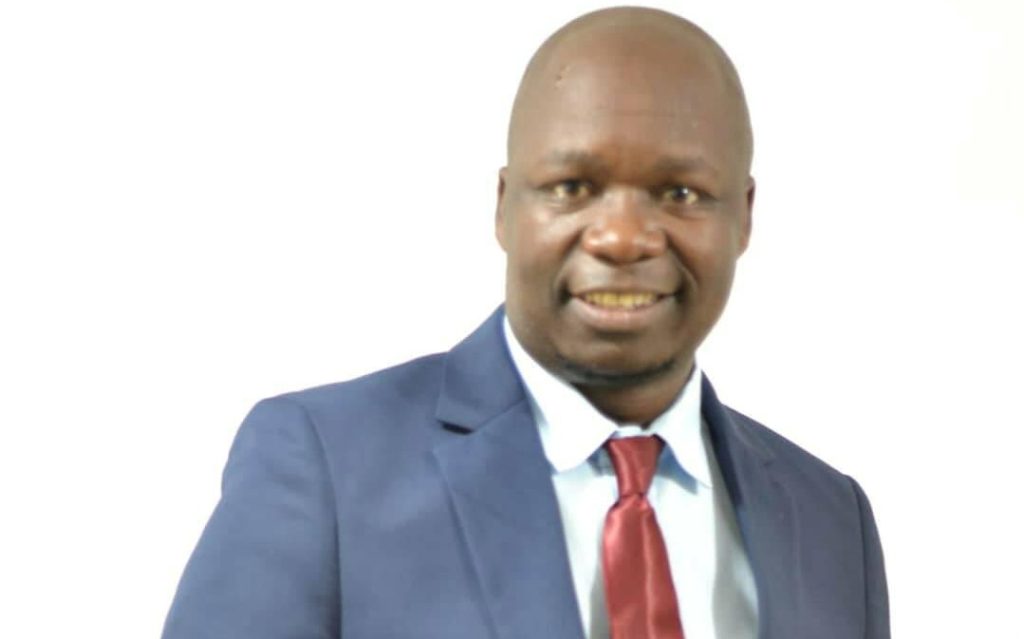‘We support open civic space’
Leadership Institute for Transparency and Accountability (Lita) has lately been conducting workshops on building resilience of civil society leadership. Our Staff reporter LLOYD CHITSULO attended one last month and caught up with the institute’s executive director GOODALL LOGEYA to find out how relevant the trainings were?
How important is it to build resilience of civil society leadership?

.This is a pertinent intervention in as far as safeguarding the tenets of our fledgling democracy is concerned. From every patriotic Malawian’s observation, the incumbent government has tactfully silenced the dissenting views. This includes the opposition political parties and the critical voice of the civil society bodies and human rights defenders, who are the cradle of providing checks and balances. This is disheartening. If the whole thing is not rectified, our democracy will be on the wane. My organisation is here to revamp the ethos of all Malawians so that they should actively participate in the civic space. It is only when we all take part in public life, shall we competently make our democracy work. Therefore, our workshops are meaningfully relevant and producing desired results as we seamlessly advocate for open civic space, promote active citizenry and build leadership resilience as well as strengthening freedom of assembly, association and expression.
. What is civic space in a lay man’s understanding?
According to the Office of High Commissioner on Human Rights (OHCHR), civic space is defined in broad terms as the physical environment that enables civil society to play a vital role in the political, economic and social life of our societies. At the sustained heart of the civic space lies free citizen participation. In particular, civic space allows individuals and groups to contribute to policy-making that affects their lives including, practically, access to information, engaging in contact and dialogue, expressing dissent views or disagreement to government policy or anarchical laws, and joining together to publicly express citizen views. An open and pluralistic civic space that guarantees freedom of expression and opinion as well as freedom of assembly and association, is a prerequisite for the thriving of socio-economic development. This, therefore, implies that the 17 Sustainable Development Goals which are now domesticated in our blueprint dubbed Agenda 2030, will be a mere pep talk and trivial write-up with no use; if Malawian civil society bodies are not strengthened to provide checks and balances to the State actors.
In your view, what is the state of civic space in the country?
We have a mixed reaction, views and opinions as regard to the country’s status. First and foremost, the incumbent government does not want citizens to exercise their freedom of association, assembly and expression. I must preface my allegation with substantial facts. Parliament had passed a new NGO law which restricts the registration of civil society organisations in Malawi. It has put stiff requirements with the aim of denying more civil societies operation in the country. Under the new NGO law, among others, civil societies must disclose source of their funding to the government, if not, they risk closure without notice. Human rights defenders who demand transparency and accountability are under target. Some are threatened, hacked, abducted imprisoned and denied bail There are also perceived allegations that this government has instituted parallel police that comprises uncivilised youth militia who are wielded with panga knives, axes and lethal weapons to threaten, intimidate and maim people with dissenting views. Protesters have been hacked.
Do you have specific examples that you can share?
In July 2022 alone, over 60 protesters were roughed up and thrown into prison. Members of Human Rights Ambassadors, a group of human rights defenders, were whisked from the office of their lawyers while lifting up a court injunction that barred them from demonstrating peacefully against high cost of living, selective justice, corruption and impunity, cronyism, nepotism and tribalism in government. It is from this social and political background that every patriotic Malawian will objectively be able to judge as to where our hard-won democracy is going under the leadership of Reverend Lazarus Chakwera. In summation, our civic space is in limbo due to oppressive and repressive governance of the ruling Malawi Congress Party (MCP).
You are on record as accusing divisions among civil society leaders. What did you mean?
This question is rhetorically in two faces: Why am I raising the accusations and why are there schism and divisions. If you ask me why I am accusing CSO leadership, then it is because their mediocrity is birthing death of serious activism. The day when civil societies cease to breathe, that will be the deathbed of active democracy. The division emanates from sheer greed, selfishness and insatiability. We must desist activism of poverty. This civic space has seen the state actors manipulating and twisting the handles of some of the civil society leaders. This is absurd and we condemn the act in strongest terms.
Lastly, are you, as the civil society leaders, successfully holding the government accountable?
Yes, my organisation appreciate the critical role of some genuine civil societies whose personalities leave no stone unturned in ensuring Malawi’s democracy remains on the pendulum. We recognise their efforts. They have fought against executive arrogance and lack of rule of law.





